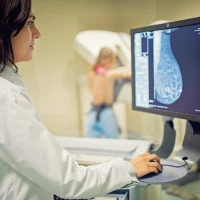Barcelona is the venue for Europe’s premier meeting on management in radiology, from 10-11 October 2013.
Management in Radiology’s Annual Scientific Meeting is two full days of dedicated topics addressed by well-known experts. It is of interest not only to radiologists, but to other physicians in different medical disciplines, as well as to radiographers/ technologists, managers, nurses, informatics personnel and vendors.

Management in Radiology (MIR) Chair, Prof. Peter Mildenberger (left), says, “MIR prides itself to offer an open and informal atmosphere at its congresses enhanced by interesting social events. We look forward to welcoming delegates to the wonderful city of Barcelona.”
The meeting includes sessions on Appropriateness and Decision Support, Quality Issues, eHealth and Teleradiology, Communication, Leadership, Innovation Management, and last but not least Management issues in Education and Research (Knowledge repositories and Analytics). Some of the highlights include:
Communication
Jan Bosmans will address the issue of structured reports, the need and justification as well as the latest research.
Education
Luis Martí-Bonmati will share a view to assessing the current situation and make recommendations for improvement in content, structures, and delivery mechanisms for education in radiology research on a European level.
Appropriateness and Decision Support

Prof. Lluís Donoso Bach (left) will be presenting on using ACR Select in Europe. Donoso Bach notes that ESR considers European referral guidelines for medical imaging essential. Guideline use can only be improved through IT-based solutions, i.e. embedding them in a Clinical Decision Support (CDS) environment. In order to pave the way for the development of a CDS system in Europe, the ESR has sought a series of meetings with a number of stakeholders. The ESR plans to develop, implement, and maintain an online Clinical Decision Support System that is available to the referring physician at the point-of-care and that provides evidence-based information and individual patient-tailored decision support tools relevant to imaging decisions. Donoso Bach will be updating on the state of this project at MIR.
In the same session, Prof. Myriam Hunin will talk about decision support for optimal use of imaging tests. Currently, clinical practice guidelines are seen as a solution, but they have many disadvantages. These include the fact that they are not tailored towards the individual patient, are difficult to access at the point-of-care, multiple guidelines are issued by different medical bodies and are outdated quickly. Ideally, patients and physicians would be supported in their clinical decision making process by a computerised support system that is accessible at the point-of-care. Hunin envisions all available patient information (demographics, signs, symptoms, lab results, genetics, imaging findings) feeding automatically into such a system. The clinical decision support system integrates the information and produces quantitative evidence-based diagnostic and prognostic predictions that are tailored to the individual and provide information on radiation exposure and specific recommendations for imaging tests.
Prof. Stephen Baker will look back at 35 years of decision support implementation. Radiology has come under increasing pressure due to increased costs and radiation dose. This has led to the “remedy” of decision support. Decision support protocols are not supple in responding to unique patient circumstances that can modify a standard “recipe” and further separate the radiologist from close, often face-to-face collaboration with referrers. Baker will outline a different approach used in his institution.
Leadership
Prof. Sergey Morozov will talk about the biggest challenges and funniest mistakes in the first 100 days in a new hospital, sharing his keys to success.
Innovation and Knowledge management
Prof. Bruce Hillman will consider the future of imaging innovation. The success of medical imaging during the past four decades has been energized by continuous research and innovation. Similar success in the future depends on continuing innovation, particularly as the imaging paradigm shifts from depicting gross anatomy and pathology to supporting molecular medicine. Fortunately, the pipeline of new technologies is robust. However, the transit of new imaging technologies faces an antagonistic health care environment. A perfect storm of adverse circumstances has reduced funding for new idea generation and commercial development.
Prof. Elmar Kotter (pictured) will be presenting with Prof. Henning Muller on Knowledge management in Radiology.

Prof. Kotter says, “Classical data mining technologies have been used and refined for quite a while in radiology. Our interest is focused on developing and using semantic technologies in radiology, applied both to radiology reports and images. In Universitätsklinikum Freiburg, we have been using RADMINER, which allows us to search radiology reports in an "intelligent" way, retrieving both
relevant reports and associated images with intuitive and fast search.
State of the art technologies for content-based search in medical images have been developed by Henning Müller's group at the HES-SO in Switzerland in the context of the Khresmoi project. The visual content of images or regions of interest is analyzed and compared with other examples in the database. Combinations of text or semantics and visual features have shown to often lead to best results when fulfilling specific information needs. Knowledge managemement in radiology will allow extraction of relevant information from databases (intelligent search technologies used in big data collections) and to discover unknown and unsuspected relationships in unstructured data, produced by radiology and also many other medical disciplines.
eHealth and Teleradiology
Dr. Erik Ranschaert will present on the work of the European Society of Radiology (ESR) eleradiology Task Force, which is
developing a web version of a teleradiology white paper, serving as an online guidance document for the practicing radiologist.
The meeting is preceded by the Postgraduate Course on Management for junior radiologists, and the ESR Radiation Protection orientation session for senior radiologists in an academic setting, both on 9 October.
For more information, visit the MIR website
Latest Articles
Congresses, MIR
Barcelona is the venue for Europe’s premier meeting on management in radiology, from 10-11 October 2013. Management in Radiology’s Annual Scientific...








